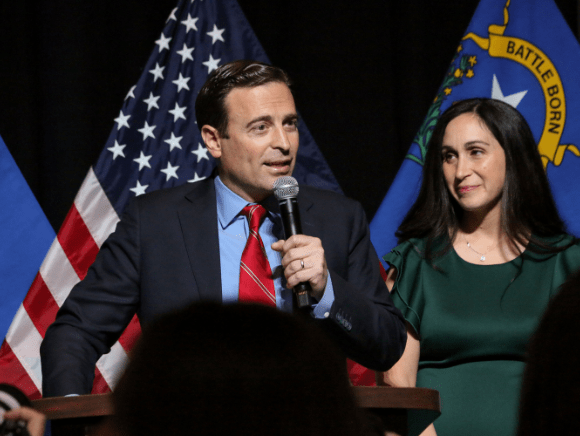Democrats will control the US Senate in the 118th Congress after incumbent Catherine Cortez Masto fended off a challenge from Republican Adam Laxalt to retain her Nevada seat. After a four-day delay in completing the ballot counting – during which Laxalt’s lead gradually shrank to around 800 votes – the final returns from an uncounted batch of mail-in ballots were delivered on Saturday evening. Cortez Masto is projected to win with 481,659 votes (48.70%) to Laxalt’s 476,676 (48.20%), as of the time the race was called by Fox News on Nov. 12. With the GOP’s lead in House seats gradually evaporating, an ominously familiar pattern is emerging as early voting, practiced mostly by Democrat voters, overwhelms Republican candidates even if they hold significant leads on election night.
 Laxalt was the GOP’s last hope for winning a Senate majority. Republicans had 49 seats and were counting on a victory in Nevada to give them 50. Had that transpired, they would have been within reach of a one-seat majority if Georgia senatorial candidate Herschel Walker defeats Democrat Sen. Raphael Warnock in their Dec. 6 runoff. The result of that race is all but irrelevant now; even if Walker wins, the Senate will remain evenly split and Democrats will have control, courtesy of Kamala Harris’s tie-breaking vote.
Laxalt was the GOP’s last hope for winning a Senate majority. Republicans had 49 seats and were counting on a victory in Nevada to give them 50. Had that transpired, they would have been within reach of a one-seat majority if Georgia senatorial candidate Herschel Walker defeats Democrat Sen. Raphael Warnock in their Dec. 6 runoff. The result of that race is all but irrelevant now; even if Walker wins, the Senate will remain evenly split and Democrats will have control, courtesy of Kamala Harris’s tie-breaking vote.
Republican Joe Lombardo unseated Nevada Gov. Steve Sisolak (D) in this year’s midterm elections, so Republicans had every reason to be optimistic.
The Nevada loss puts a cap on the Republican Party’s disastrous midterms strategy – assuming, of course, that they do not come up short in the remaining House races and allow Democrats to also retain a majority in the lower chamber. Twenty House races remain undecided. Republicans hold a 211 – 204 lead with 218 seats required for a majority.




